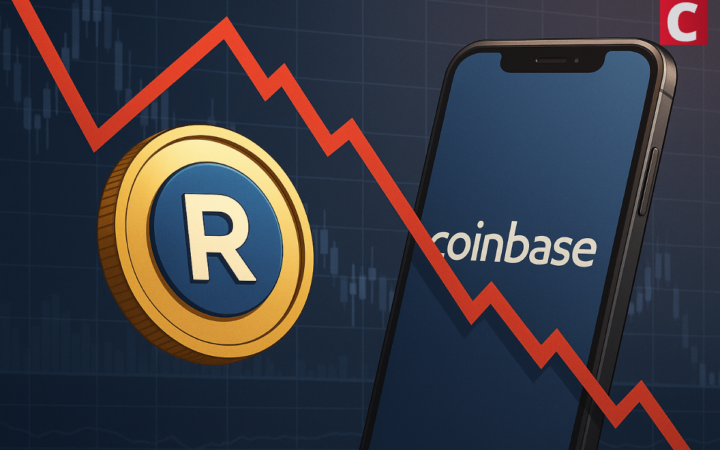
OSA DC stands for Optimal Shelf Availability Decentralized, a nod to the retail industry practice of the same name that the platform was built to improve.
Optimal shelf availability refers to the practice of managing in-store goods to assure that shelves don’t carry too much or too little of a product. Currently, retailers use a variety of manual inventory checks, shelf monitoring hardware, third party research, and other practices to optimize their shelves’ product availability.
However, retailers and their manufacturers lack the technological infrastructure or resources to keep airtight tabs on inventory in order to eliminate understocking and overstocking consumer goods. Without the means to efficiently manage their business strategies, global retailers lose a collective $500 bln in revenue annually from product waste and mismanagement.
This is where OSA DC comes in. OSA DC leverages artificial intelligence to provide retailers and manufactures with clean, invaluable data to improve their business practices. They’ll be able to track consumer trends with analytic precision and respond to stock-outs in real-time. Additionally, the Blockchain provides a complete database of all product information, allowing any member of the supply chain to track an item and verify its product information (e.g. nutrition facts, origin) by cross checking the Blockchain’s immutable ledger.
This includes consumers, who can have complete peace of mind when making purchases from retailers thanks to this reliability and transparency. They’ll also have the benefit of receiving rewards in OSA token for, among other things, making contributions to the network, and providing purchasing data or product information, which will help enrich the shopping experience for other customers.
The Retail Industry’s Problems, OSA DC’s Solutions
Waste, supply chain inefficiencies, and general mismanagement cut into the bottom lines of retailers and consumer goods producers the world over. Understocking and overstocking causes retailers to lose some $400 bln in annual profits. When you add the $100 bln they lose from negligence and waste, we arrive at the $500 bln in total revenue losses we discussed earlier.
When products are understocked and stores face stock outs, retailers may pay the price even further by losing customer business. After all, if you were a consumer and your go-to store kept failing to deliver your favorite brands, wouldn’t you go elsewhere?
At the end of the day, these inefficiencies mean unhappy customers and profit loses for retailers and their manufacturers. And this is just for inventory issues. When you dig deeper into the intricacies of supply chain management and shipping, there’s also a host of problems for product tracking and verification.
OSA DC neutralizes all of these inefficiencies with its platform’s synergy of AI and Blockchain technologies. With help from shelf-monitoring sensors, image recognition, and a wealth of data sources, OSA’s AI and machine learning will create models for businesses to optimize their inventory and sales strategies.
This could be anything as simple as creating sensor alerts for when a shelf has run out of bread. Conversely, it could be something as complex as tracking promotional offers from competitors, pulling data from consumer surveys, and factoring in data, that customers who use OSA DC’s data marketplace commit to the network. Aggregating and analyzing this data, OSA’s AI can create forecasts for purchasing trends that help store owners plan out their inventory for the coming months, thus mitigating the chance and damage of stockouts or overstocking.
OSA DC has partnered with Neuromation, using its services for on-shelf image recognition to enrich its AI models. As a synthetic data platform, Neuromation uses image recognition software to train more efficient AI models, label data sets, and generate product data. Its native currency, Neurotoken (NTK) will be used as a payment option on the network to compensate data providers, computation providers, and those who provide AI models and other data sets to the platform. OSA DC will utilize Neuromation’s cutting edge technology to properly train its AI to respond to on-shelf stockouts in real-time.
The Blockchain has its own part to play in OSA, as well, securing product information and overseeing business operations with a variety of smart contracts and ledger-recorded key performance indicators (KPIs).
At its core, the Blockchain will create a foolproof, immutable data master catalog for all the products circulating through a retailer and/or manufacturer’s supply chain. The ramifications for improving supply chain tracking and quality control are substantial. Retailers will be able to track products from factory floor to their door with complete assurance that the product hasn’t missed a pace in the shipping process, as they can track it with pinpoint accuracy every step throughout the way.
As what shelf sensors are to OSA’s AI, biosensors and quality control management hardware will work with the Blockchain to give retailers the tools to keep complete tabs on product conditions, especially for those that may be temperature/environment sensitive.
The Complete Picture
Ultimately, OSA DC unites producer, retailer, and consumer all under a single network. Each will have access to the OSA platform’s AI and Blockchain services, creating a healthier, more trusting, and more efficient shopping experience for all involved.
KPIs will be evaluated using smart contracts, meaning that if a retailer meets a quote for selling, say, 90% of the goods it purchases from a manufacturer, they may be rewarded for meeting the KPI’s standards, whether in OSA token, discounts, or some other incentive.
Meanwhile, consumers can rest easy knowing that the Blockchain keeps both store owners and producers honest. They’ll be able to verify product information on the Blockchain’s ledger to make sure what’s being advertised matches up with the product’s actual attributes. Additionally, they can use OSA’s AI assistant to search for deals, discounts and goods that suit their preferences, all the while being rewarded in OSA token for network contributions. These tokens can then be exchanged for products, promotions, and other incentives at participating stores.
OSA DC: Token Sale, Team, Mission
The project opened registration for its token sale’s whitelist on March 20, which closed on May 15. From May 27 to June 16, OSA will hold a public presale, which will feature an early bird bonus, while the main sale will start June 17 and run through July or until a hard cap of $40 mln is reached. All tokens will be distributed to contributors 30 days after the sale ends. The ICO price for one OSA token (OSA) is 0.0002 ETH.
Participating in a token sale no doubt carries risks but OSA DC’s team is primed to succeed. In fact, they already have. The OSA Hybrid Solution, OSA DC’s predecessor, is an AI-driven supply chain solutions platform that has already been implemented by the likes of Danone, Mars, L’Oreal, Coca Cola, Pespico, JTI, Metro, and other leading retail giants. The final result: an average of 5.4% increase in profit margins for 70 retailers and manufacturers across 40 countries.
These results come from a team with over a century of combined experience in the retail industry. Leading the charge is Maximilian Musselius, OSA DC’s Strategy and Vision Lead, who serves as the Executive Director of Efficient Consumer Response (ECR) Russia. Co-founder Alex Isaiev has over 17 years of experience in the fast moving consumer goods industry, as well, holding a variety of positions including management positions at Japan Tobacco International.
OSA DC also comes complete with industry veteran advisors, including Don Swann, former VP of Operations and COO of Walmart’s North American, Russian, and Brazilian branches. The project’s business development lead, Gary Fowler, used to serve in executive positions at such big names as Simiens and HP.
Disclaimer: Coinspeaker is committed to providing unbiased and transparent reporting. This article aims to deliver accurate and timely information but should not be taken as financial or investment advice. Since market conditions can change rapidly, we encourage you to verify information on your own and consult with a professional before making any decisions based on this content.






